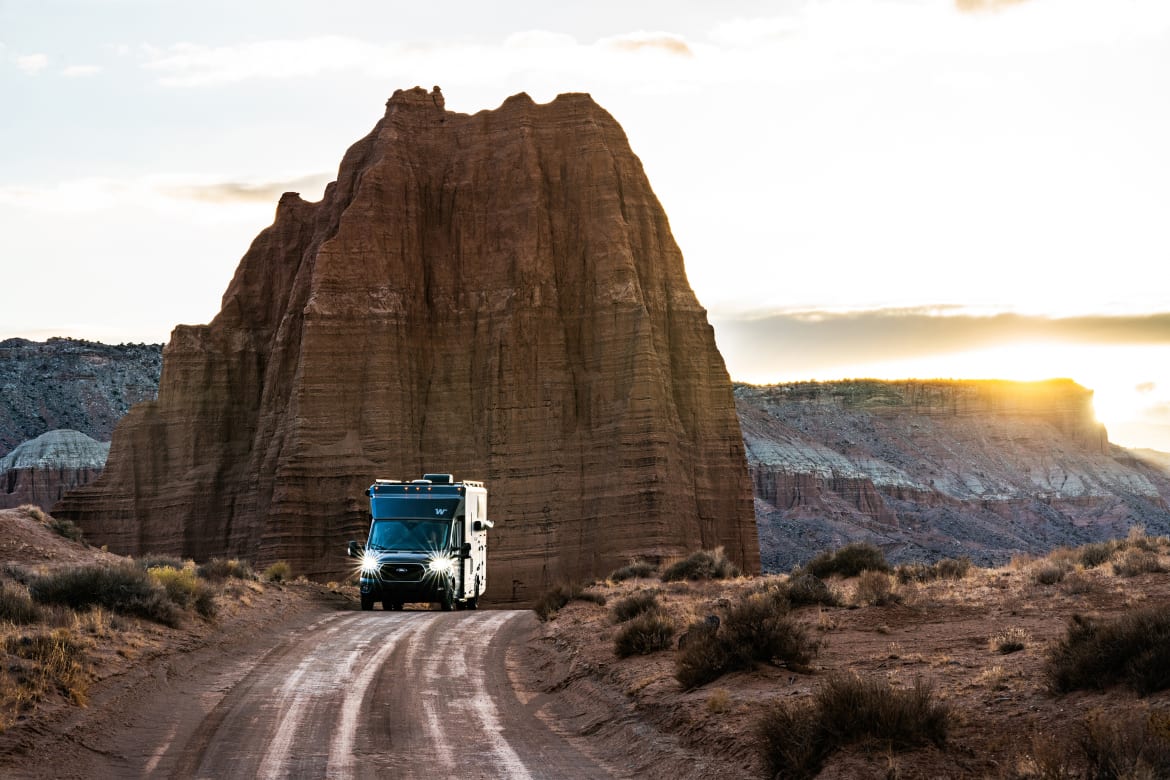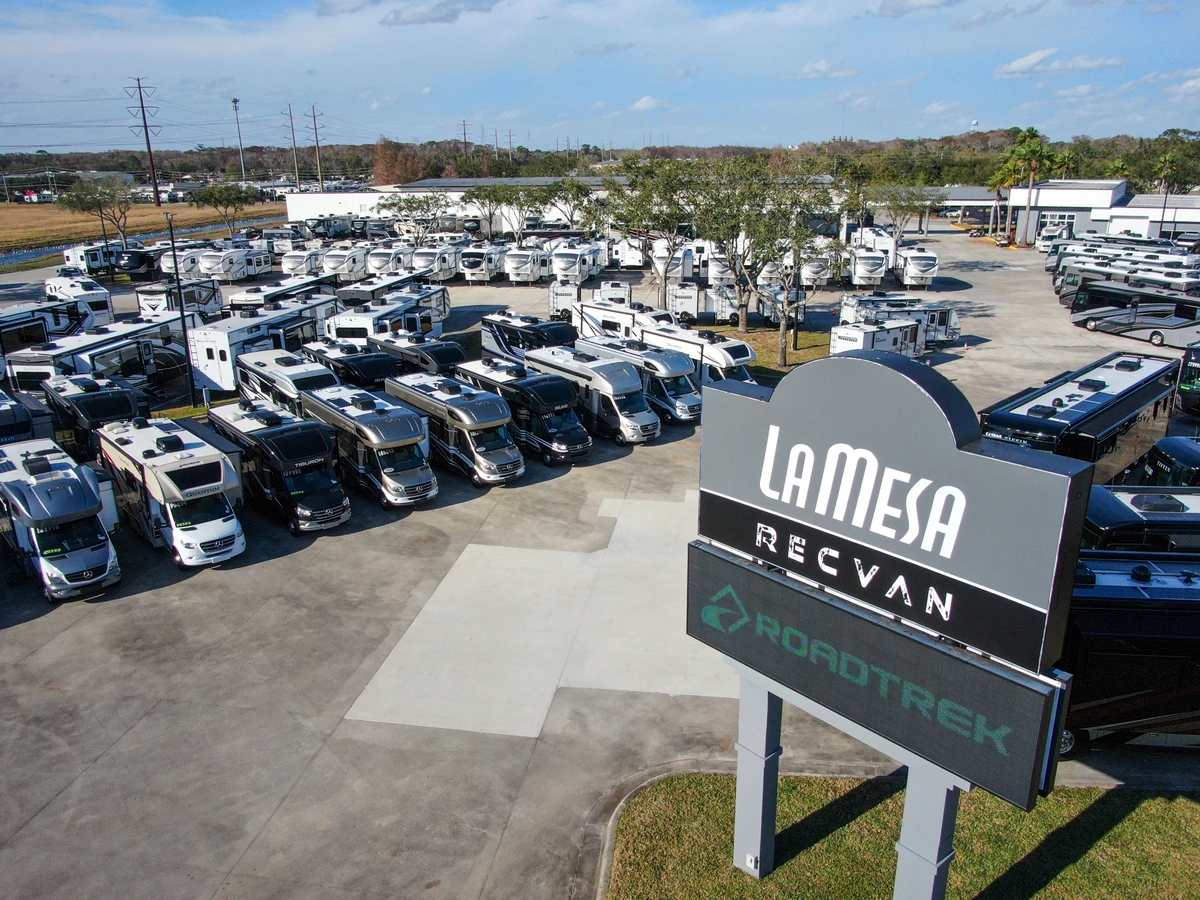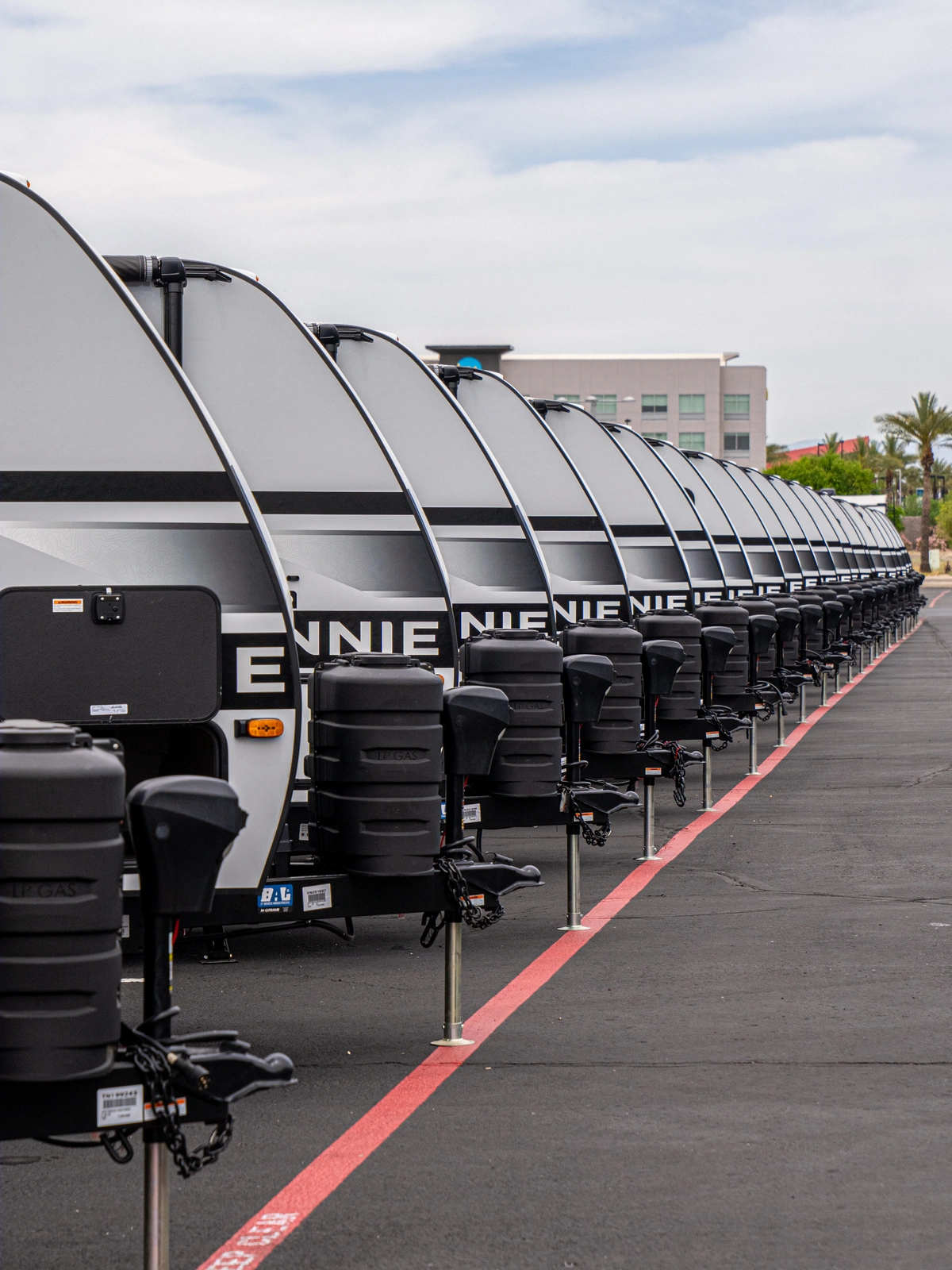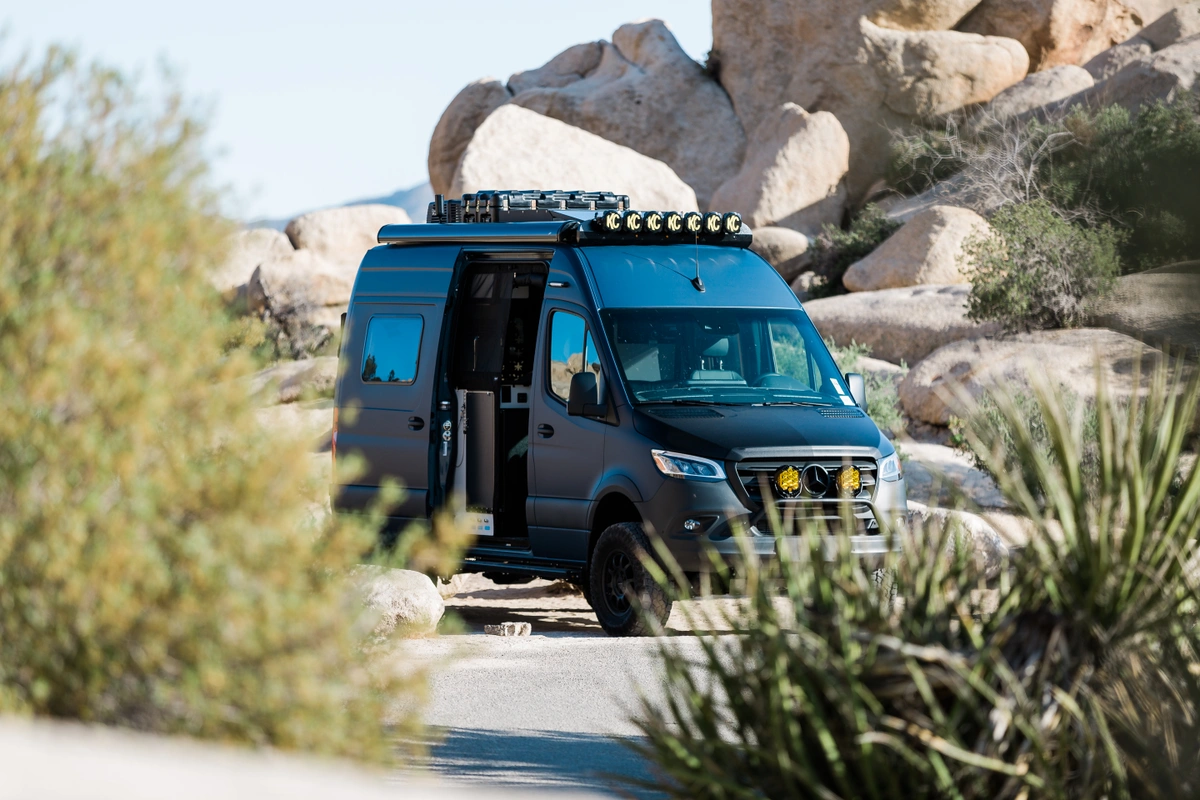Setting out on your first RV trip will invoke a slew of feelings. Excitement, joy, and feeling nerve-wracked are to be expected. We want you to remember that we have all been there. When you set out on your RV adventure, leave with the expectation that you will make mistakes. The good news is that each hiccup will teach you a valuable skill or lesson, making you better at this whole camping business.
Before we left on our full-time RV trip, we watched as many YouTube videos as possible. I recommend reading up and watching as much as you can before hitting the road. After you've prepared yourself and have hit the road a few times, RVing will being to come fairly easy and you will notice a routine forming for each person in your camping party. And if you have kids, get them involved with age-appropriate tasks. They can be super helpful in helping set up and break camp. To learn more tips and tricks for newbie RVers, read on!
Guest Post by Laura Georgieff
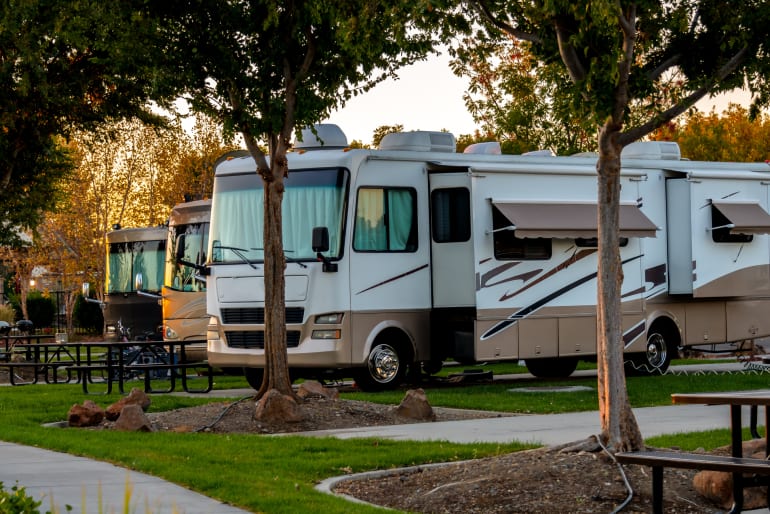
Everything You Need to Know When RVing for the First Time
At The Dump Station
Using the dumping station is never fun, but it is necessary. Have some latex or plumber gloves ready and know which valve controls the black water tank (toilet) and which one controls the gray water tank (kitchen sink and shower). You always want to dump the black tank before the gray water. That way, the gray water will clean out your sewer hose and you will have a much more pleasant experience at the dump station, or at your campsite's sewer hookup.
In a perfect world, the sewer connector is low on the ground and you have this beautiful downward slope towards the hole. Unfortunately, in our very real camping world, that rarely is the case. You want to have a sloped RV sewer hose support which helps you create a downward slope so that everything can come out of your tanks without you having to physically handle the sewer hose.
Many campers use a weight where the sewer hose connects to the sewage pipe. We never had any issues with that connection, so we generally don't use any rocks or weight to hold the sewer hose head down.
After the dumping is complete, rinse the hose out with some clean water (use a regular hose, not your drinking water hose for this!) so that it doesn't start smelling. It is normal for the clear plastic of the sewer connector to start fading - that has nothing to do with it being dirty. It's just how the plastic ages over time.
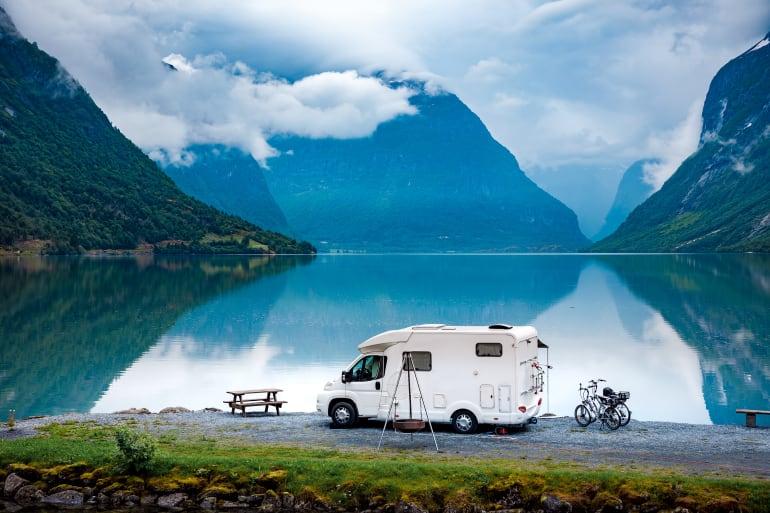
Know Your Blind Spots and Practice, Practice, Practice
One very important thing to get familiar with, is the blindspots and turning radius of your rig. Most of us don't drive a big truck or trailer on a regular basis. We aren't professionally-trained truck drivers. Take your time to get familiar with your specific setup. Find a big open parking lot and practice turning, backing up and parking. You definitely want to know which turns are too tight.
If you can, have a family member or friend walk around the rig while you try to see them in your mirrors and cameras. That way, you are aware of your blindspots. Be aware of them especially when you are in a city with pedestrians and cyclists. Most rigs have a long wheelbase after the rear axle, meaning your rig tends to "cut" curves and swing its "butt" outward. This is very important to know when you are turning so that you don't get into other lanes or hit any objects while parking.
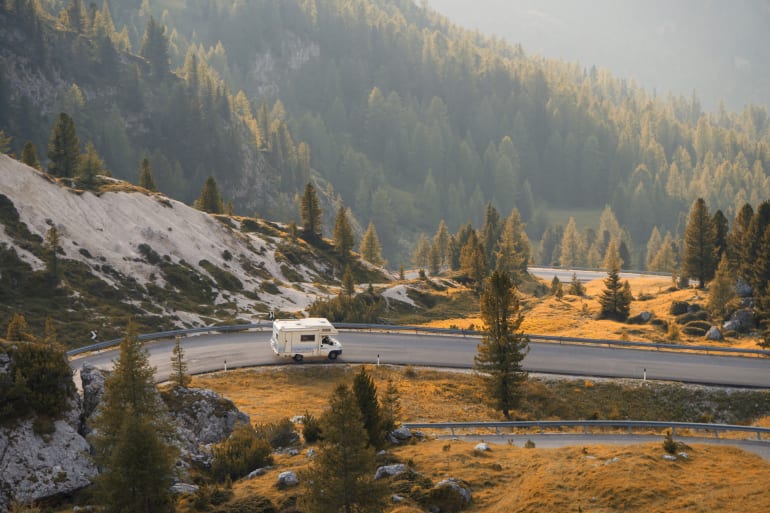
Driving Your Rig and Expecting the Unexpected
Another important aspect of driving your RV, involves passing other vehicles and knowing when you have sufficient space to move in front of the passed vehicle. You don't want to cut off the person you just passed. It is a safety hazard and can make truckers very upset (understandably so). For our motorhome, I know we can pull in front of the passed vehicle when that said vehicle is almost disappearing from the vision of our rear facing camera. It took some time to figure this out, but it is a very helpful measure as you may feel pressured by other cars in the left lane, hoping to get you out of their way as quickly as possible. Don't feel pressured! Make sure everyone is safe.
My last advice for novice campers is to expect the unexpected when driving. Many people are unfamiliar with how long it takes for an RV to come to a full stop, for example. We got into some hairy situations when a small car passed us and then wanted to make a right turn right after getting in front of us. When a vehicle gets in front you, get off the gas pedal or even start breaking as soon as possible to make sure there is a safe distance between you and the vehicle in front of you. Driving a big, heavy rig can be frustrating at times, especially as other vehicles keep jumping into the space you leave for safety, but I truly believe people aren't doing it maliciously, they are just not aware of how a rig breaks and reacts.
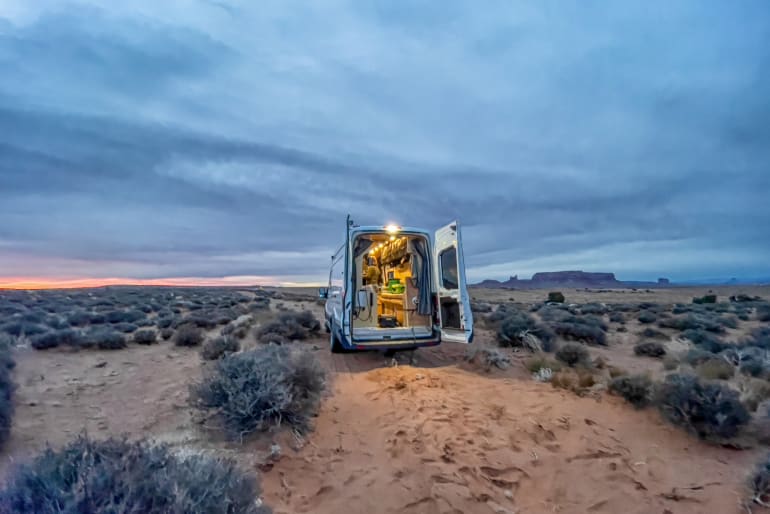
Breaking and Setting Camp
Costly mistakes can happen as you break camp. To be honest, even after 13 months of full-time RVing, I think that sliding in is terrifying! Nothing scares me more than pushing those buttons to bring our slide outs in and out.
It is good to have a routine, and you will naturally develop it the more you practice. While some people use reminder bands to remember their steps, you will for sure create your own routine without even realizing it. Always make sure that nothing is left out - give the opportunity to the smallest thing to fly around, and it will! Think of your RV as a home going through an earthquake the entire time you drive down the highway... nothing, and I mean nothing, should be out.
Part of your routine will be tightening things. Make sure all doors, shower door, TVs, fridge, etc. are securely latches. All cabinet doors should be shut and your kitchen sink should be covered with its countertop cut outs. Always pick up everything from the floor and broom, prior to sliding in. I am a little obsessed with my slide outs (as you can tell) and always feel worried that even sand would scratch my floors or damage my slide outs, if my floors aren't clean prior to breaking camp.
When you get to the next campground, always check your floors for loose items prior to sliding out. We have had kids books and even loose blankets slide under slide outs and get stuck underneath them as we sled out... that is easily avoidable by eyeing your floors all around first! Your routine will include everything outside your rig as well. From emptying your tanks to putting away hoses, packing up chocks, connecting tow vehicles, etc.
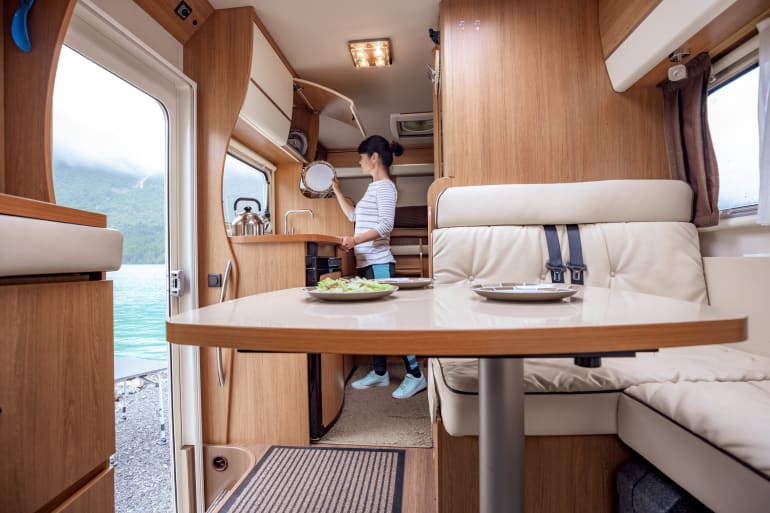
Things to Know About Your RV:
There are two things you need to either learn by heart or have readily available:
If you can't remember that information, have a sticker on your front window to refer to in emergencies. There is nothing worse that getting to a bridge and being too tall!
One must when driving down the road, is to use a truck GPS system. Some apps can help with this, but a live GPS is a must in our experience. A truck GPS lets you put in your vehicle's height and weight, and only guides you down roads that fit your dimensions! A true life saver on the road!!
Things that are Good to Remember about your RV as New RVers:
Several things are good to know off the top of your head, when it comes to camping. If you are a newbie, I promise those will come quick!
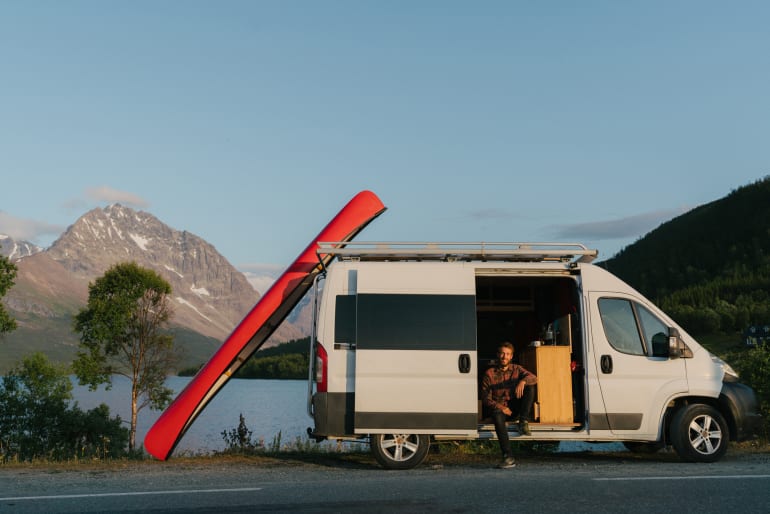
RV 101: Tips and Tricks for RV Newbies
There is so much to camping and I promise you that things will come naturally. You won't even notice the progress you make, but soon everything we discussed and more, will be second nature!
There are so many other areas you should have some basic knowledge of. Try to watch as many videos out there as you can. Some thought starters are:
While there is always more, we believe the points above will be a good starting spot you embark on your first RV trip! Happy camping and always reach out to other campers online and at campground. It is the most beautiful community out there, with people always ready to help! For ideas on where to head on your first road trip, check out our blog featuring amazing RV Destinations.
